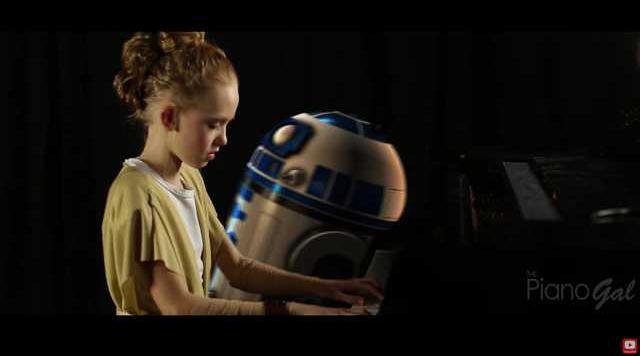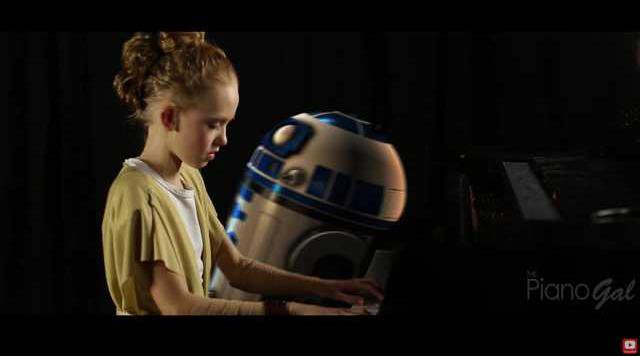A 13-year-old played songs from Harry Potter, Star Wars, Indiana Jones and Jurassic Park films and incorporated elements from each movie in her latest video.
A YouTube video published Friday shows Sarah Arkell, known as The Piano Gal, performing an arrangement of different John Williams songs.
Arkell incorporates elements from each movie into her performance. She wears a Darth Vader helmet as she plays The Imperial March from Star Wars. The Snitch from Harry Potter also makes an appearance.
According to Arkells Pateron page, she began playing the piano at age 5.
The video is Arkells submission to the CVX Live Next Big YouTuber contest. In last years contest, Arkell finished in the top 5.
Fan voting is now open on the CVX Live Facebook page. Voters can submit one vote per day until March 11.
Watch the video on YouTube here.
A YouTube video published Friday shows Sarah Arkell, known as The Piano Gal, performing an arrangement of different John Williams songs.
Arkell incorporates elements from each movie into her performance. She wears a Darth Vader helmet as she plays The Imperial March from Star Wars. The Snitch from Harry Potter also makes an appearance.
According to Arkells Pateron page, she began playing the piano at age 5.
The video is Arkells submission to the CVX Live Next Big YouTuber contest. In last years contest, Arkell finished in the top 5.
Fan voting is now open on the CVX Live Facebook page. Voters can submit one vote per day until March 11.
Watch the video on YouTube here.








